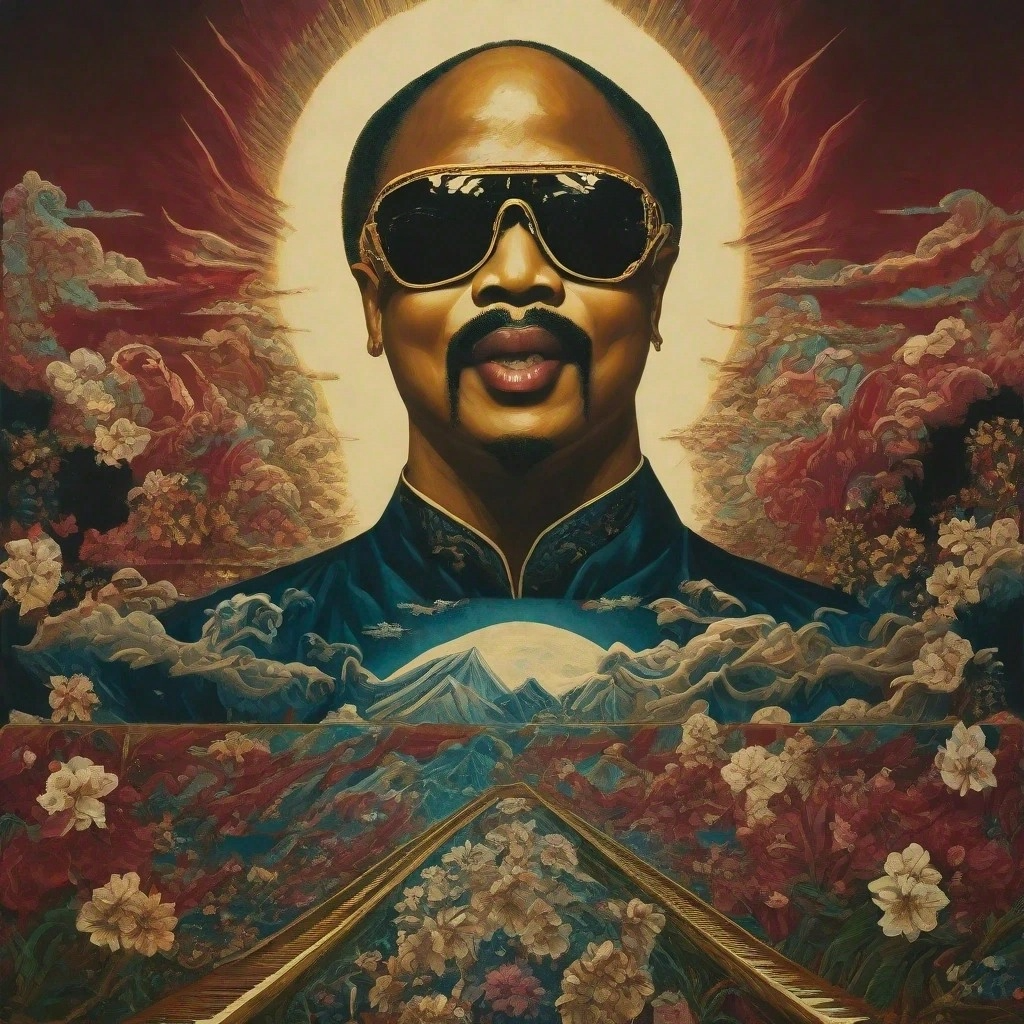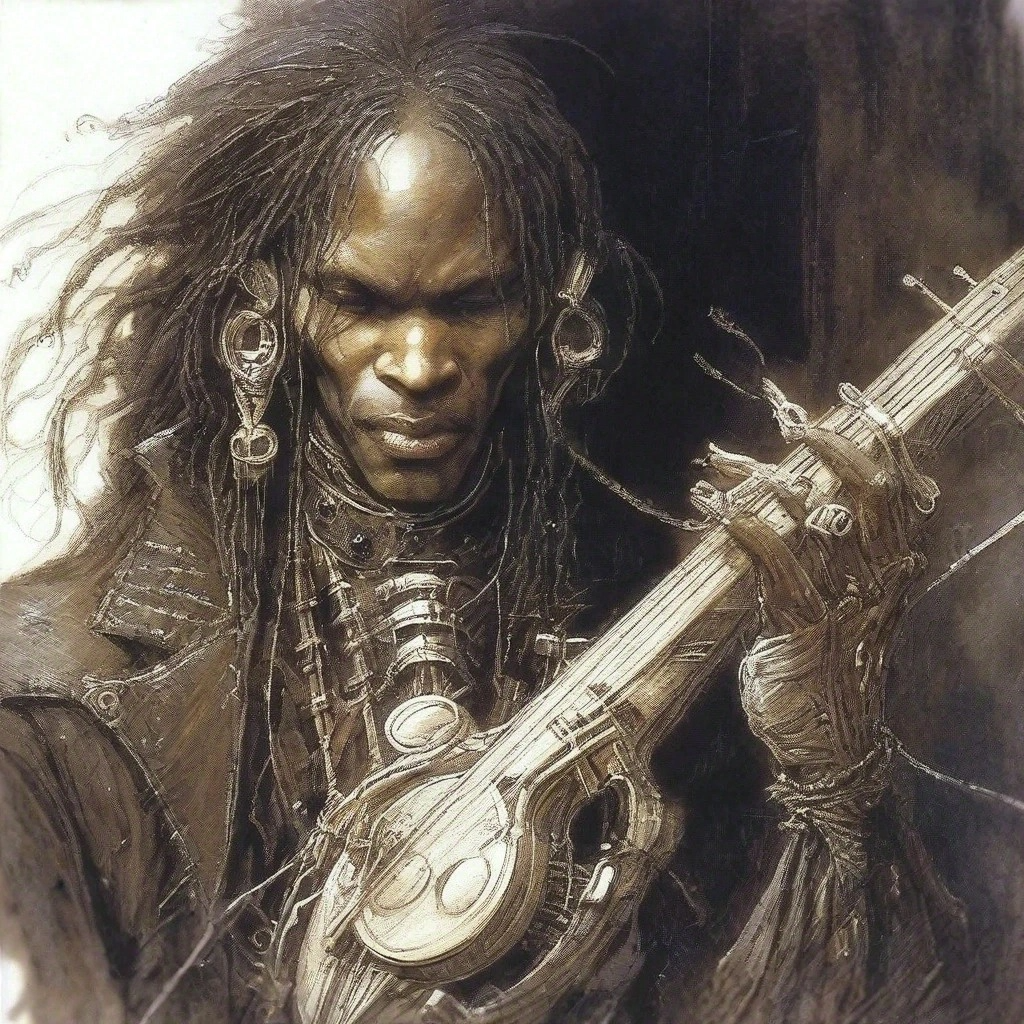Stevie Wonder
Stevie Wonder stands as an iconic figure in the realm of music, his name synonymous with innovation, talent, and resilience. Born Stevland Hardaway Judkins on May 13, 1950, in Saginaw, Michigan, Wonder’s journey to musical greatness is a testament to the power of passion and perseverance. From his early beginnings as a child prodigy to his trailblazing career as a singer, songwriter, and multi-instrumentalist, Wonder’s impact on the music industry is immeasurable.
At the tender age of 11, Wonder was discovered by Ronnie White of The Miracles, leading to his signing with Motown’s Tamla label. Under the mentorship of Berry Gordy Jr., the founder of Motown Records, Wonder flourished, releasing his debut album, “The Jazz Soul of Little Stevie,” in 1962. This marked the inception of a career that would span decades and leave an indelible mark on the landscape of popular music.
Throughout his illustrious career, Wonder has defied categorization, seamlessly blending genres such as soul, R&B, pop, funk, and jazz to create a sound uniquely his own. His distinctive vocal range, coupled with his virtuosity on various instruments including the piano, harmonica, and drums, has captivated audiences worldwide.
Beyond his musical prowess, Wonder’s activism and humanitarian efforts have cemented his legacy as a cultural icon. His timeless classics, such as “Superstition,” “Isn’t She Lovely,” and “I Just Called to Say I Love You,” continue to resonate with listeners of all ages, transcending barriers of time and genre.
As we embark on this journey through the life and career of Stevie Wonder, we are reminded of the transformative power of music and the enduring legacy of one of the greatest musical talents of all time. In the subsequent sections, we will delve deeper into the early years, artistic evolution, career milestones, and enduring legacy of this musical luminary.
Early Years and Influences
Stevie Wonder’s early years were marked by both triumphs and challenges, shaping the foundation of his remarkable journey in the world of music. Born prematurely and blinded shortly after birth due to complications from receiving too much oxygen in his incubator, Wonder’s resilience was evident from the outset. Despite his visual impairment, he was blessed with an extraordinary musical gift that would soon captivate the hearts of millions.
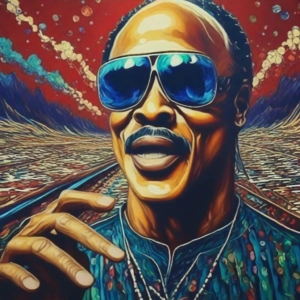 Growing up in Saginaw, Michigan, Wonder’s musical talents began to manifest at a young age. He showed an innate ability to play various instruments, including the piano, harmonica, and drums, demonstrating a remarkable ear for melody and rhythm. His family recognized his exceptional abilities early on and nurtured his musical inclinations, providing him with the support and encouragement needed to flourish.
Growing up in Saginaw, Michigan, Wonder’s musical talents began to manifest at a young age. He showed an innate ability to play various instruments, including the piano, harmonica, and drums, demonstrating a remarkable ear for melody and rhythm. His family recognized his exceptional abilities early on and nurtured his musical inclinations, providing him with the support and encouragement needed to flourish.
Wonder’s influences were diverse and eclectic, reflecting the rich tapestry of American music. He drew inspiration from a wide range of artists, including Ray Charles, Sam Cooke, Marvin Gaye, and Aretha Franklin, whose soulful voices and emotive performances resonated deeply with him. Wonder’s exposure to gospel music in church also left an indelible mark on his musical sensibilities, infusing his work with a profound sense of spirituality and soulfulness.
At the age of 11, Wonder’s life changed forever when he was discovered by Ronnie White of The Miracles. Impressed by his talent, White introduced him to Berry Gordy Jr., the founder of Motown Records, who recognized Wonder’s potential and signed him to the label. This marked the beginning of Wonder’s professional career in music, as he embarked on a journey that would propel him to stardom.
Despite facing numerous obstacles and setbacks along the way, including struggles with his health and personal challenges, Wonder remained undeterred in his pursuit of musical excellence. His resilience, coupled with his unwavering dedication to his craft, enabled him to overcome adversity and emerge as one of the most influential artists of his generation.
In the subsequent sections, we will explore the artistic evolution, career milestones, and enduring legacy of Stevie Wonder, tracing the trajectory of his remarkable career and the impact of his music on the world stage. From his humble beginnings in Saginaw to his ascent to international fame, Wonder’s journey is a testament to the power of perseverance, passion, and the transformative nature of music.
Artistic Evolution and Musical Identity
Stevie Wonder’s artistic evolution and musical identity are characterized by a relentless pursuit of innovation, creativity, and authenticity. Throughout his expansive career spanning over six decades, Wonder has continually pushed the boundaries of genre and style, cementing his status as a pioneering force in the world of popular music.
In his formative years at Motown Records, Wonder initially gained recognition as a child prodigy, earning the nickname “Little Stevie Wonder.” His early albums, including “The Jazz Soul of Little Stevie” and “With a Song in My Heart,” showcased his proficiency as a talented instrumentalist and vocalist, while hinting at the artistic depth and creativity that would come to define his later work.
As Wonder matured as an artist, his music underwent a profound transformation, reflecting the social and cultural upheaval of the 1960s and 1970s. He began to experiment with new sounds and arrangements, incorporating elements of funk, rock, and jazz into his repertoire, while infusing his lyrics with themes of love, social justice, and spirituality.
One of the defining moments in Wonder’s artistic evolution came with the release of his landmark album, “Talking Book,” in 1972. The album showcased Wonder’s newfound creative freedom and innovative spirit, featuring timeless classics such as “Superstition” and “You Are the Sunshine of My Life.” With its groundbreaking use of synthesizers, electronic effects, and layered arrangements, “Talking Book” marked a departure from Wonder’s earlier sound and laid the groundwork for his future experiments with electronic music.
Throughout the 1970s, Wonder continued to push the boundaries of his artistry, releasing a string of critically acclaimed albums, including “Innervisions,” “Fulfillingness’ First Finale,” and “Songs in the Key of Life.” These albums not only solidified Wonder’s reputation as a musical genius but also cemented his place in the pantheon of pop music icons.
At the heart of Wonder’s musical identity is his unparalleled ability to convey emotion and tell stories through his music. Whether addressing themes of love and romance or tackling pressing social issues such as racism, poverty, and political corruption, Wonder’s lyrics are imbued with a sense of sincerity, empathy, and humanity that resonates with listeners on a profound level.
Beyond his solo work, Wonder has collaborated with a diverse array of artists across genres, further expanding his musical horizons and influencing the trajectory of popular music. From his collaborations with jazz legends like Herbie Hancock and Quincy Jones to his work with rock icons like Paul McCartney and Elton John, Wonder’s versatility and adaptability have made him a sought-after collaborator and mentor.
In conclusion, Stevie Wonder’s artistic evolution and musical identity are a testament to his boundless creativity, unwavering commitment to excellence, and profound impact on the world of music. From his humble beginnings as a young prodigy at Motown Records to his status as a global superstar and cultural icon, Wonder’s legacy continues to inspire and uplift audiences around the world, transcending generations and leaving an indelible mark on the fabric of popular culture.
Social and Cultural Impact
Stevie Wonder’s influence extends far beyond the realm of music, encompassing a wide range of social and cultural spheres. Throughout his illustrious career, Wonder has used his platform to advocate for social justice, equality, and inclusion, making him not only a musical icon but also a powerful voice for change.
One of the most significant aspects of Wonder’s social impact is his unwavering commitment to advocating for the rights of marginalized communities, including people with disabilities, racial minorities, and the economically disadvantaged. As a blind African American artist navigating an industry dominated by sighted individuals, Wonder’s success serves as a testament to the power of perseverance and determination in the face of adversity.
Wonder’s music has often served as a vehicle for promoting messages of unity, compassion, and empathy. Through songs like “Living for the City,” “Higher Ground,” and “Black Man,” he has addressed issues of systemic racism, poverty, and social inequality, shining a light on the struggles faced by marginalized communities while advocating for positive change.
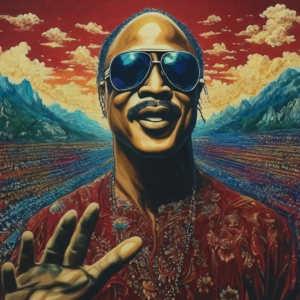 In addition to his activism through music, Wonder has been actively involved in various social and humanitarian causes throughout his career. He has lent his support to organizations such as the United Nations, the Martin Luther King Jr. Center for Nonviolent Social Change, and the Special Olympics, using his influence to raise awareness and funds for important causes.
In addition to his activism through music, Wonder has been actively involved in various social and humanitarian causes throughout his career. He has lent his support to organizations such as the United Nations, the Martin Luther King Jr. Center for Nonviolent Social Change, and the Special Olympics, using his influence to raise awareness and funds for important causes.
Wonder’s impact on popular culture extends beyond his music, influencing fashion, art, and even technology. His distinctive style, characterized by colorful clothing and signature sunglasses, has left an indelible mark on fashion trends, while his pioneering use of synthesizers and electronic effects has had a lasting impact on the evolution of music production.
Furthermore, Wonder’s influence can be felt in the broader cultural landscape, as his music continues to be celebrated and revered by audiences around the world. His timeless classics, such as “Isn’t She Lovely,” “Signed, Sealed, Delivered (I’m Yours),” and “Sir Duke,” have transcended generations, remaining as relevant and impactful today as they were upon their release.
In conclusion, Stevie Wonder’s social and cultural impact is a testament to the transformative power of music and the enduring legacy of one of the greatest artists of all time. Through his music, activism, and humanitarian efforts, Wonder has inspired millions of people around the world to strive for a more just, equitable, and inclusive society, leaving behind a legacy that will continue to resonate for generations to come.
Personal Life: Behind the Scenes
Beyond the spotlight and the stage, Stevie Wonder’s personal life offers a glimpse into the man behind the music—a journey marked by triumphs, challenges, and moments of profound resilience.
Wonder’s early years were shaped by the warmth and support of his family, who played a pivotal role in nurturing his musical talents and instilling in him a strong sense of determination and perseverance. Despite being born blind, Wonder’s parents encouraged him to pursue his passions and dreams, providing him with the love and encouragement he needed to overcome obstacles and forge his own path.
Throughout his life, Wonder has been open about his experiences navigating the world as a blind individual, acknowledging both the challenges and the opportunities it has presented. From learning to navigate unfamiliar spaces using his heightened senses to developing innovative techniques for composing and producing music, Wonder’s journey is a testament to the power of adaptation and resilience in the face of adversity.
In addition to his musical pursuits, Wonder’s personal life has been marked by significant relationships and milestones. He has been married three times and is the father of nine children, each of whom has played a unique role in shaping his life and career. Wonder’s devotion to his family is evident in his music, with songs like “Isn’t She Lovely,” written in celebration of the birth of his daughter Aisha, serving as heartfelt expressions of love and joy.
Despite his success and fame, Wonder has also faced his share of personal struggles and setbacks. From health issues, including a near-fatal car accident in 1973 that left him in a coma for several days, to the tragic loss of his mother Lula Mae Hardaway in 2006, Wonder’s journey has been marked by moments of profound challenge and sorrow.
Through it all, Wonder’s resilience and optimism have remained unwavering, serving as a source of inspiration to fans around the world. Whether through his music, his activism, or his personal interactions, Wonder’s warmth, kindness, and compassion shine through, leaving an indelible impression on all who have had the privilege of knowing him.
In conclusion, Stevie Wonder’s personal life offers a rich tapestry of experiences and emotions, reflecting the complexities of the human experience. From the joys of fatherhood to the challenges of navigating a world that is not always accommodating to those with disabilities, Wonder’s journey serves as a testament to the power of resilience, love, and the pursuit of passion and purpose.
Discography and Creative Works
Stevie Wonder’s discography is a testament to his unparalleled creativity, musical innovation, and enduring influence on the world of popular music. Spanning over six decades, his extensive body of work encompasses a wide range of genres and styles, reflecting his diverse musical influences and evolving artistic vision.
Wonder’s discography begins with his early recordings as “Little Stevie Wonder” on the Motown label in the early 1960s. His debut album, “The Jazz Soul of Little Stevie,” released in 1962, showcased his prodigious talent as a multi-instrumentalist and vocalist, earning him critical acclaim and establishing him as a rising star in the music industry.
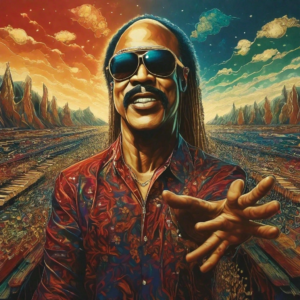 Throughout the 1960s and 1970s, Wonder released a string of groundbreaking albums that solidified his reputation as one of the most innovative and influential artists of his generation. Albums such as “Talking Book” (1972), “Innervisions” (1973), and “Songs in the Key of Life” (1976) are widely regarded as masterpieces, earning multiple Grammy Awards and topping charts around the world.
Throughout the 1960s and 1970s, Wonder released a string of groundbreaking albums that solidified his reputation as one of the most innovative and influential artists of his generation. Albums such as “Talking Book” (1972), “Innervisions” (1973), and “Songs in the Key of Life” (1976) are widely regarded as masterpieces, earning multiple Grammy Awards and topping charts around the world.
One of Wonder’s defining characteristics as an artist is his ability to seamlessly blend genres and styles, incorporating elements of soul, funk, R&B, jazz, and pop into his music. This versatility is evident in his discography, which features a diverse array of songs and compositions, ranging from soulful ballads to funky grooves to socially conscious anthems.
In addition to his solo work, Wonder has collaborated with a wide range of artists across genres, further expanding his creative horizons and leaving an indelible mark on the music industry. From his collaborations with fellow Motown artists like Marvin Gaye and Diana Ross to his work with rock legends like Paul McCartney and Elton John, Wonder’s influence can be felt across the musical landscape.
Throughout his career, Wonder’s music has tackled a wide range of themes and subjects, from love and romance to social justice and spirituality. His lyrics are often deeply introspective and thought-provoking, addressing pressing issues of the day while offering messages of hope, unity, and resilience.
In conclusion, Stevie Wonder’s discography is a testament to his enduring talent, creativity, and influence as one of the greatest musicians of all time. From his early recordings as a child prodigy to his iconic albums of the 1970s and beyond, Wonder’s music continues to inspire and uplift listeners around the world, leaving an indelible legacy that will stand the test of time.
Enduring Legacy and Historical Significance
Stevie Wonder’s enduring legacy and historical significance are undeniable, spanning generations and transcending cultural boundaries. As one of the most influential and innovative artists of the 20th and 21st centuries, Wonder’s impact on the world of music and popular culture is profound and far-reaching.
At the heart of Wonder’s legacy is his unparalleled musical talent and creativity. Throughout his career, he has consistently pushed the boundaries of genre and style, blending elements of soul, funk, R&B, jazz, and pop to create a sound uniquely his own. His innovative use of synthesizers, electronic effects, and layered arrangements has set new standards for music production and paved the way for future generations of artists.
Wonder’s influence extends beyond the realm of music, encompassing a wide range of social, cultural, and political issues. Through his music and activism, he has been a powerful voice for social justice, equality, and inclusion, advocating for the rights of marginalized communities and shining a light on pressing issues such as racism, poverty, and political corruption.
One of the defining moments in Wonder’s career came with the release of his landmark album, “Songs in the Key of Life,” in 1976. Widely regarded as one of the greatest albums of all time, “Songs in the Key of Life” earned critical acclaim and commercial success, winning multiple Grammy Awards and topping charts around the world. Its timeless songs, including “Sir Duke,” “I Wish,” and “Isn’t She Lovely,” continue to resonate with audiences today, solidifying Wonder’s status as a musical icon.
In addition to his musical achievements, Wonder’s philanthropic efforts and humanitarian work have left a lasting impact on the world. He has been actively involved in various charitable organizations and causes, using his platform to raise awareness and funds for important issues such as education, healthcare, and environmental conservation.
Wonder’s legacy also extends to future generations of artists who have been inspired and influenced by his music and activism. From contemporary pop stars to indie rockers to hip-hop artists, Wonder’s influence can be heard in the work of countless musicians across genres, showcasing his enduring relevance and impact on the evolution of popular music.
In conclusion, Stevie Wonder’s enduring legacy and historical significance are a testament to his unparalleled talent, creativity, and influence as one of the greatest artists of all time. From his groundbreaking music to his unwavering commitment to social justice and humanitarian causes, Wonder’s impact on the world will continue to be felt for generations to come, leaving an indelible mark on the fabric of popular culture and the human experience.
Fan Engagement and Community Building
Stevie Wonder’s connection with his fans goes beyond the music, fostering a sense of community and engagement that has endured throughout his career. From intimate concerts to global events, Wonder has consistently sought to connect with his audience on a personal level, creating a bond that transcends boundaries of age, race, and nationality.
One of the key elements of Wonder’s fan engagement strategy is his commitment to live performance. Throughout his career, he has toured extensively, delighting audiences around the world with his electrifying stage presence and dynamic performances. Whether performing in stadiums, theaters, or intimate venues, Wonder’s concerts are a celebration of music, joy, and unity, bringing together fans from all walks of life in a shared experience of love and appreciation.
 In addition to live performances, Wonder has embraced new technologies and platforms to engage with his fans in innovative ways. From social media to streaming services, he has leveraged digital tools to connect with a global audience, sharing behind-the-scenes glimpses of his life and career while fostering a sense of community among his followers.
In addition to live performances, Wonder has embraced new technologies and platforms to engage with his fans in innovative ways. From social media to streaming services, he has leveraged digital tools to connect with a global audience, sharing behind-the-scenes glimpses of his life and career while fostering a sense of community among his followers.
Wonder’s commitment to community building extends beyond his interactions with fans to his involvement in charitable initiatives and social causes. Throughout his career, he has been a tireless advocate for social justice, equality, and inclusion, using his platform to raise awareness and funds for important issues such as education, healthcare, and environmental conservation. Whether through benefit concerts, fundraisers, or public campaigns, Wonder has consistently demonstrated his commitment to making a positive impact on the world.
Another hallmark of Wonder’s fan engagement strategy is his accessibility and approachability. Despite his status as a global superstar, he remains down-to-earth and humble, taking the time to connect with fans on a personal level and show appreciation for their support. Whether signing autographs, posing for photos, or simply sharing a moment of conversation, Wonder’s interactions with fans are marked by warmth, kindness, and genuine appreciation.
In conclusion, Stevie Wonder’s fan engagement and community building efforts are a testament to his enduring commitment to his audience and his belief in the power of music to unite and uplift. Through live performances, digital engagement, charitable initiatives, and personal interactions, Wonder has created a vibrant and inclusive community of fans who share a deep love and appreciation for his music and his message of hope, love, and unity.
Conclusion and Reflections
Stevie Wonder’s journey through the realms of music, activism, and humanity is a testament to the transformative power of passion, perseverance, and purpose. From his humble beginnings as a blind prodigy in Saginaw, Michigan, to his ascent as a global icon and humanitarian, Wonder’s life and career have been marked by triumphs, challenges, and moments of profound impact.
As a musician, Wonder’s creativity knows no bounds, seamlessly blending genres, pushing boundaries, and crafting timeless melodies that resonate with audiences across generations. His discography is a rich tapestry of soulful ballads, infectious grooves, and socially conscious anthems, each song a reflection of his unwavering commitment to authenticity and artistic expression.
Beyond the music, Wonder’s activism and philanthropy have left an indelible mark on the world, inspiring countless individuals to stand up for justice, equality, and compassion. Whether advocating for the rights of marginalized communities, raising awareness for pressing social issues, or lending his voice to charitable causes, Wonder’s impact extends far beyond the confines of the recording studio.
At the heart of Wonder’s legacy is his ability to connect with people on a profound level, fostering a sense of community, empathy, and shared humanity that transcends barriers of race, age, and nationality. Through his music, his activism, and his personal interactions, Wonder has touched the lives of millions, leaving behind a legacy of love, hope, and unity that will continue to resonate for generations to come.
In reflecting on Wonder’s remarkable journey, we are reminded of the power of music to inspire, uplift, and unite. In an ever-changing world fraught with challenges and uncertainties, Wonder’s message of love, resilience, and social justice serves as a beacon of hope and a reminder of the enduring strength of the human spirit.
As we celebrate the life and legacy of Stevie Wonder, let us be inspired to carry forth his legacy of creativity, compassion, and activism, using our voices and talents to create a world that is more just, equitable, and inclusive for all. In the words of Wonder himself, “Music, at its essence, is what gives us memories. And the longer a song has existed in our lives, the more memories we have of it.” May Stevie Wonder’s music and message continue to inspire us for generations to come.
